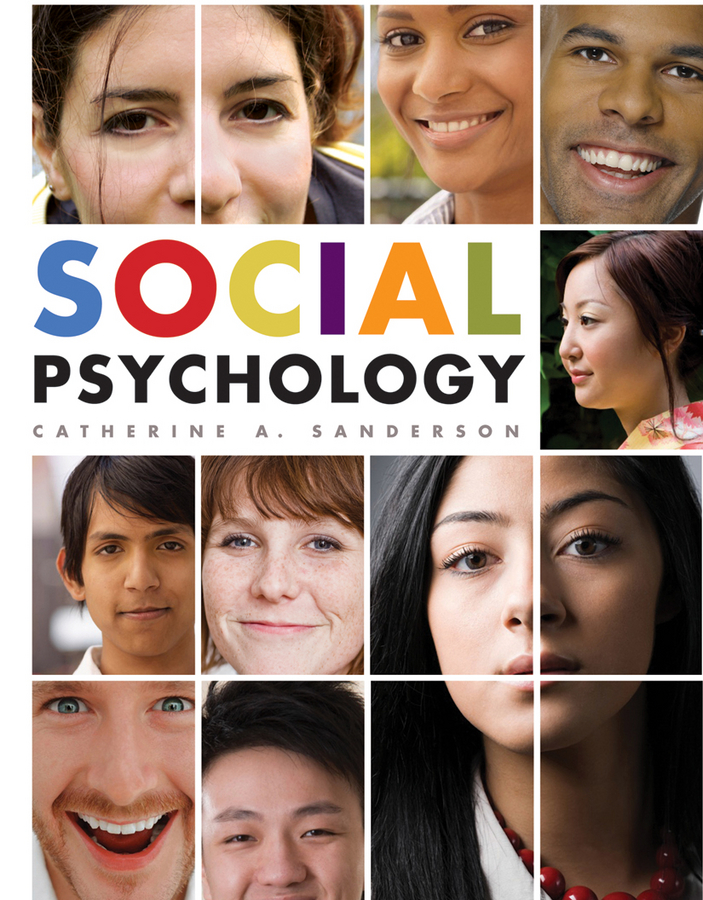
Social Psychology
By Catherine A. Sanderson
Social Psychology opens students’ minds to a world beyond their own experience so that they will better understand themselves and others. Sanderson’s uniquely powerful program of learning resources is specifically designed to move students from passive observers to active course participants. Application boxes on law, media, environment, business, health, and education are integrated in every chapter at the point of learning so that students can make immediate and meaningful connections between social psychology concepts and the real world.
WileyPLUS for Social Psychology is an online teaching and learning platform that helps instructors and students achieve educational success.
Schedule a Demo Sign Up for a Test Drive Adopt WileyPLUSWant to learn more about WileyPLUS? Click Here
Topical videos appeal to a variety of learning styles.
Each course section includes CyberPsych Videos that engage students in an active learning experience.

Research-based graphs clearly illustrate key findings.
Integrated throughout the program, annotated graphic representations of research results help students interpret the key findings of the respective study.

Integrated applications show how social psychology connects to the real world.
Connection boxes in each chapter apply topics in the text to the broader themes of health, law, environment, business, education, and media. All social psychology texts include applications; this program integrates these applications directly with the topics instead of putting them in separate sections or appendices.
- Cross-Cultural Material: Each chapter concludes with a section called “How Does Culture Influence?”.These sections review chapter topics with a focus on how the findings and theories may differ in various cultures. Through this consistent approach, students learn to appreciate the role of culture in social behavior.
- Chapter Openers: Students are drawn in with preview headlines and real-world application topics linked directly to corresponding readings. A series of “Did you ever wonder?” teaser questions are designed to pique students’ interest.
- Questioning the Research:These queries in each chapter prompt students to question the results and implications of research studies. A separate chapter on research methods describes the strengths and weaknesses of different methods as well as strategies for increasing validity of research studies.
- Rate Yourself: Students respond to thesequizzes to test their personal scores on measures that are described in the text. Several of these occur in each chapter to help the reader make a connection to the topic and to increase awareness of their own thoughts and perceptions.
- Take Action: These end-of-chapter prompts ask students to apply social psychology to their own lives.
Features Include

CATHERINE SANDERSON is the Manwell Family Professor of Life Sciences (Psychology) at Amherst College. She received a bachelor’s degree in psychology with a specialization in Health and Development from Stanford University, and she received both master’s and doctoral degrees in psychology from Princeton University. Sanderson’s research examines how personality and social variables influence health-related behaviors. Her research has received grant funding from the National Science Foundation and the National Institute of Health. Sanderson has published over 25 journal articles and book chapters in addition to five college textbooks, a high school health textbook, and a popular press book on parenting. In 2012, she was named one of the country’s top 300 professors by The Princeton Review.
- Introduction
- Research Methods
- Self-Perception and Presentation
- Social Perception5. Social Cognition
- Attitude Formation and Change
- Persuasion
- Social Influence: Norms, Conformity, Compliance, and Obedience
- Group Influence: The Impact of Group Processes
- Stereotypes, Prejudice, and Discrimination
- Aggression
- Interpersonal Attraction and Close Relationships
- Altruism and Prosocial Behavior

